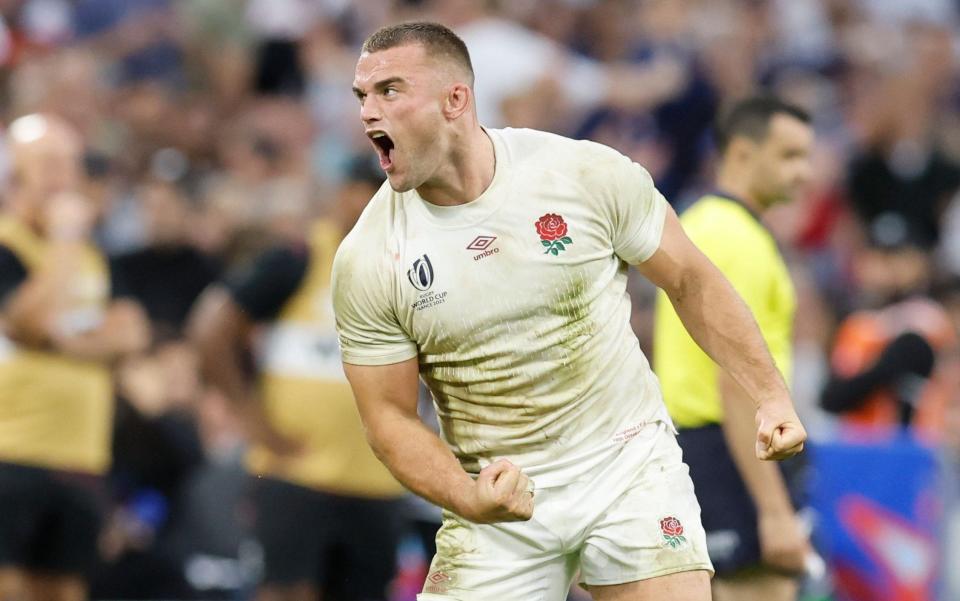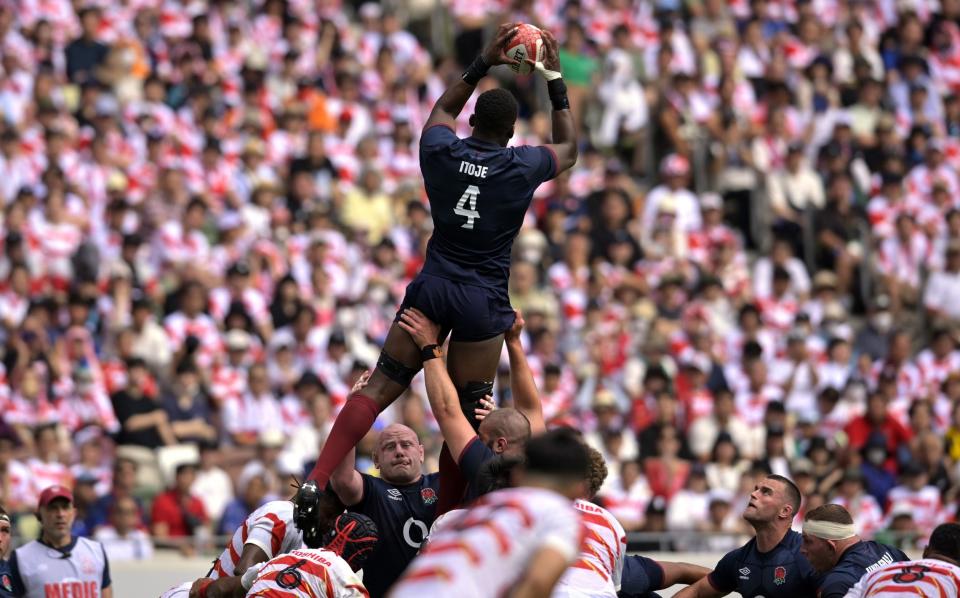Six questions that will define England’s series against All Blacks

One year and two weeks since the earliest group of players assembled at Pennyhill Park for England’s first World Cup pre-season camp, a marathon campaign is closing in on its denouement as Steve Borthwick’s side prepares to face New Zealand.
The two-Test series represents an absorbing way to round things off. Here are six questions that will shape the next fortnight.
How quickly can the All Blacks gel?
Traditionally on these trips, notwithstanding a thumping win for New Zealand in the first Test of the series against Ireland two years ago, the touring team has their best chance in the opening game. That would seem to be especially likely here.
England have now had six Tests since the World Cup, including last weekend’s tune-up in Tokyo. The All Blacks have not played in eight months, meaning a revamped coaching team must adapt to unfamiliar aspects of a new World Cup cycle – a lock partnership without either Sam Whitelock or Brodie Retallick, for instance – on the hoof.
While undoubtedly green in places, Borthwick’s side looks settled. It might help them, too, that the first Test is under the roof in Dunedin, the scene of Manu Tuilagi’s dalliance on the wing in 2014, rather than at fortress Eden Park. New Zealand’s squad is brimming with dynamism. There are experienced operators and cohesive combinations, such as a midfield of Jordie Barrett and Rieko Ioane. All that said, some degree of rust is inevitable.
Will Damian McKenzie seize his chance as a Test 10?
Richie Mo’unga’s lucrative sabbatical in Japan deprives All Blacks head coach Scott Robertson of the playmaker that guided so much of his success with the Crusaders. Instead of Mo’unga, it would appear that Damian McKenzie, another will-o’-the-wisp livewire, will wear 10. Beauden Barrett is a contingency who could retain his place at full-back ahead of Stephen Perofeta and TJ Perenara, the 80-cap scrum-half, returns to add know-how.

McKenzie has been a utility bench man for the All Blacks, with most of his starting chances coming from 15. Were he to be fielded at fly-half against England, it would be just his fifth Test start in that position. He brings sparky footwork – a quality that Robertson admires in Marcus Smith – and a creative kicking game.
His confidence levels should be high on the back of an assured Super Rugby campaign with the Chiefs in which McKenzie amassed 177 points with an 86 per cent success rate from the tee. According to Stats Perform, he recorded the most kicks (162) in the competition and the second highest kicking metres (5,293).
Even in the Super Rugby final, as Blues snuffed out his side, the 29-year-old darted at the line and released Anton Lienert-Brown with an inside pass, which led to Simon Parker’s try. Defence coach Felix Jones will demand that England rush and ruffle McKenzie as much as possible.
Youth and experience in the scrummaging battle
Besides their brawny picking and going, masterminded by Vern Cotter, another pillar of the Blues’ success this season was their powerful scrum. Robertson has picked the 32-year-old Ofa Tu’ungafasi from the champion franchise, yet has other highly promising props.
Ethan de Groot is the pre-eminent loosehead, with Tyrel Lomax and Fletcher Newell on the opposite side. Tamaiti Williams can lend his weight to both sides, it seems. He came on for De Groot in the World Cup final and almost shoved New Zealand to a scrum penalty at the death.
England’s old warhorses, Joe Marler and Dan Cole, are on tour to prevent the All Blacks from milking set-piece penalties. How they are balanced by younger, more mobile props will be interesting; especially on the loosehead. Does Borthwick back Bevan Rodd or throw in Fin Baxter?

Can New Zealand bring their line-out back towards World Cup levels?
Underpinned by the trio of Scott Barrett, Whitelock and Retallick, with one of the latter pair beginning among the replacements, New Zealand returned a 95.7 per cent success rate at the line-out during the last World Cup, and used that platform as a prolific source of tries.
The middle Barrett brother has ascended to the captaincy and is joined by two specialist locks, Patrick Tuipulotu and Tupou Vaa’i in the wider squad. England are depleted there, too, in the absence of Ollie Chessum. It was interesting to see Borthwick draft in Nick Isiekwe, a springy jumper proficient at stealing opposition throws, for the suspended Charlie Ewels.
Behind Codie Taylor, now a 33-year-old veteran of 85 Tests, Robertson has the explosive Asafo Aumua and George Bell, a rookie, as hookers to feed the line-out. Depending on how Maro Itoje goes as England’s strategist, it could become an area of vulnerability for New Zealand.

Ardie Savea vs Ben Earl: who prevails?
Another to have headed to Japan, where he played for Kobelco Kobe Steelers, Ardie Savea togged out for Oriental Rongotai, a Wellington club side, last weekend in a bid to stay sharp. His duel with Earl, as part of a blockbuster back-row battle, promises to be engrossing.
By overlooking Hoskins Sotutu and including youngster Wallace Sititi, Robertson has signposted that Savea, his vice-captain and the reigning world player of the year, will remain as front-line No 8. Dalton Papalii is poised to start at openside flanker, with Roberston known to be a fan of resourceful blindside Ethan Blackadder.
England have scope to team up Sam Underhill and Tom Curry, New Zealand’s chief tormentors in 2019, yet will want Earl on the field for as long as possible – at centre if necessary. The Saracen makes no apology over how these head-to-heads motivate him and overshadowed Caelan Doris at Twickenham in March. Prevailing in this one will take two mighty performances.
Which back three can impose itself?
Though they later capitulated and the match ended in a draw, the All Blacks scored a stunning try at Twickenham in 2022. From his own 22, Beauden Barrett nudged a kick-pass across to Caleb Clarke. Ioane looped around his Blues colleague, collected a pass and streaked 70 metres to score.
Clarke and Mark Tele’a, the latter of whom produced a phenomenal display in the World Cup final, have enjoyed excellent Super Rugby seasons. The final featured a hat-trick from Clarke, while Tele’a still slips tackles all over the pitch. Sevu Reece is in the same mould as a menace around the breakdown and Emoni Narawa of the Chiefs deserves his call-up despite a difficult Super Rugby decider.
If the England blitz malfunctions or does not stop their opponents from playing to space, New Zealand’s wide men will pile on the pain and ensure the All Blacks score in fives and sevens. The trio of Tommy Freeman, George Furbank and Immanuel Feyi-Waboso must show conviction as defensive tone-setters and present the hosts with headaches of their own.

 Yahoo Sport
Yahoo Sport 






































